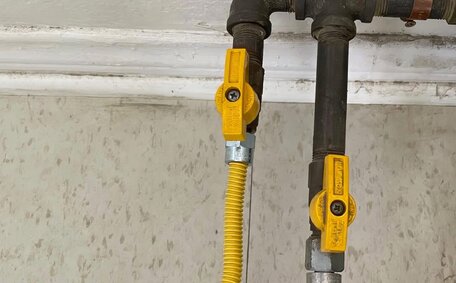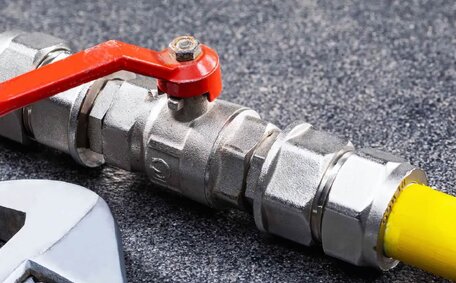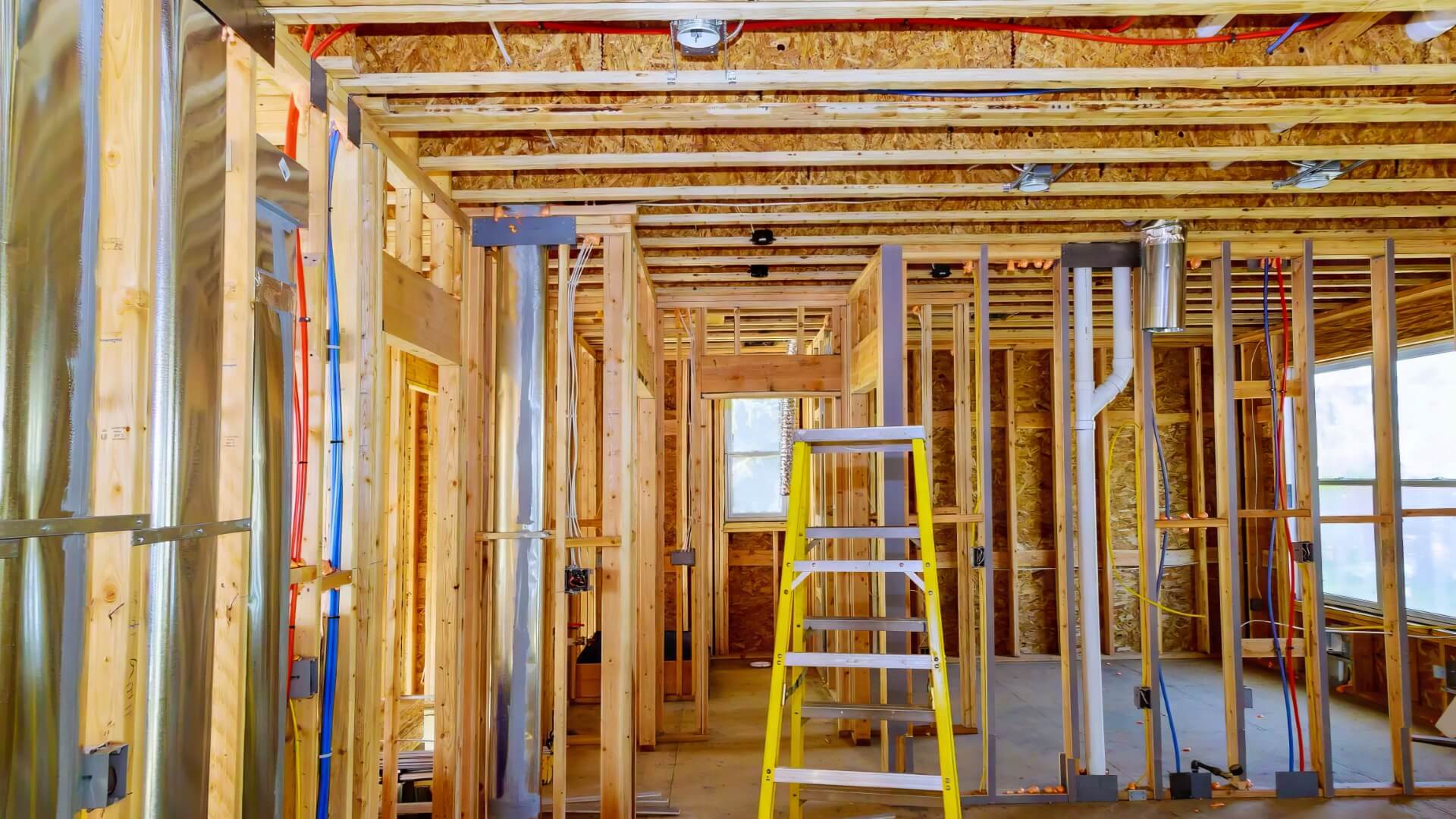
Natural Gas vs. Propane: What’s the Difference?
Propane and natural gas are popular fuel sources, but have different origins and properties. Propane delivers more BTUs per cubic foot. Natural gas is piped underground to homes.
Read MoreAct immediately if you smell gas in your home; it’s a critical safety concern. The rotten egg scent indicates a hazardous gas leak, posing risks of fire, explosion, or carbon monoxide poisoning. Here are the crucial steps to take right away:
Prompt and safe actions help prevent dangerous gas accumulation in your home, allowing for its safe dissipation before emergency services address hazardous levels. Do not use any gas appliances or re-enter the building until the gas smell has been confirmed as resolved by emergency services. Make sure to protect such your home and yourself by responding appropriately the moment you smell gas in your surroundings.
After taking safety precautions, the next step is to identify the source of the leak, especially if the gas smell is noticeable outside. As gas rises and spreads through a building, faint odours that make you think 'I do smell gas’ can be perplexing to trace. Here is some guidance for what do gas experts recommend when it seems gas can be smelled or something seems awry:
Enhanced ventilation helps pinpoint gas concentrations inside buildings, aiding in the detection of gas presence. Should leaks be confirmed inside appliances or pipe joints, have professionals perform urgent repairs before restoring gas supply.
Pay attention to variations in gas odour strength from room to room, which may indicate different leak behaviours. Attempting DIY fixes often worsens issues, so expert help is advised.
Should a gas leak inside the house be detected, immediately turn off all gas to mitigate additional hazards. This crucial action, where you turn off your home’s gas supply, isolates the issue until gas technicians arrive to fully resolve it. Here is a linear approach addressing what natural gas can necessitate:
Turning off the gas supply through the home’s meter can only reduce risks while awaiting the arrival of professionals. This action limits exposure to any leaking gas, but ensure to only do so if it’s safe to access the valve from outdoors, upwind from the leak.
If a major gas leak is confirmed inside your home or business in Lake Macquarie, call your local gas emergency assistance immediately by calling Lake Macquarie Plumbing on 1300 349 338. As experienced local specialists in gas issues, our 24/7 service can swiftly identify leak sources and carry out essential repairs.
Report unmanageable leaks compromising personal safety to emergency services by dialling 000. Quote the situation as a ‘gas leak emergency requiring Fire Brigade and Gas Supplier attendance’. This mobilises appropriate resources to combat risks.
When reporting leaks by phone, ensure you call from a safe, upwind location away from the gas danger area. Mobile phones and other electronics can spark ignitions so avoid use within leak vicinities.
Give emergency responders information about the leak’s characteristics, severity, potential sources, and confirm that safety measures are in place. Follow any specialist advice provided until the gas smell in your property is resolved by licensed technicians. Do not return to the property until it has been declared safe, to avoid additional risks.
Once a gas leak is confirmed, it is crucial to arrange professional assessment and repair by qualified technicians. Unaddressed leaks can lead to extreme safety perils, encompassing fire, explosion, and poisoning. Do not attempt makeshift fixes yourself; instead, rely on local gas experts.
Reach out to a licensed gas fitter or emergency plumber as soon possible to:
For local and timely leak response in the Woollahra region, email [email protected] or call Woollahra Plumbing on 1300 349 338. Our experienced, fully-accredited gas technicians operate 24/7 to make leak situations safe.
Only employ certified, licensed gas specialists for leak diagnosis and repairs, rather than general handypersons. Correct credentials proving current gas service licencing must be shown on request.
Once emergency services are contacted about a gas leak, it is crucial everyone evacuates to a secure location upwind and awaits further instruction. Do not re-enter the home or building until explicitly advised it is safe, with no remaining gas danger.
Choose a distant outdoor waiting area far from the leak to ensure the safety of your home and its occupants. Steer clear of using your phone or electronics that might initiate ignitions and exacerbate the gas scenario at your residence. Obtain updates from personnel managing the incident once you’re a safe distance away.
For homes, gather family members and neighbours from the property at one central assembly point. Confirm no persons remain inside and check off names against prepared evacuation lists. Inform emergency services about anyone unaccounted for.
Assist personnel when possible by answering questions on layouts, leak locations and appliance types once in the safe zone. Follow all official directives before authorities issue the final all-clear that gas levels are neutralised indoor and it is secure to re-enter premises.
Never take risks by entering gas leak sites prematurely. Even if small odours linger, by law technicians must conduct rigorous venting, testing and certification before signing off. So wait patiently outside until notified the property is habitable once more after the incident.
Inhaling leaked gas poses serious health dangers depending on concentration and exposure duration. Key risks include:
It’s critical to seek rapid hospital care to ensure gases don’t impact the health of your body and carry away smell related symptoms like headaches, or difficulty breathing. Call 000 to arrange emergency medical transport if required. Avoid exertion and rest in fresh air while waiting as this limits continued gas exposure and further health impacts.
To help avoid potential leak your gas in the future, implementing preventive measures provides essential safeguards. Key actions to take include:
Install carbon monoxide and natural gas detectors with alarms to alert occupants to leaks early on. Position detectors near appliances and sleeping areas so you’ll know about rising gas concentrations and receive a prompt warning.
Organise annual checks by accredited gas fitters to ensure no gas leaks from home appliances like water heaters and stoves. They test for wear and tear, remove residues impeding function and replace aged parts prone to leaks.
Scan visible gas pipes and connectors regularly for signs gas corrosion and loose fittings that may become leak points. Watch for signs of gas such as the rotten egg odour which indicates gas could be leaking, plus listen for any detectable hissing noises.
Any disused gas pipes should be safely disconnected and capped by professionals as residual gas inside can still leak out over time.
Vigilance in monitoring and maintenance, following gas safety tips, significantly reduces leak risks; however, immediate action is imperative if you suspect a leak. For your family’s safety and property protection, opt for reputable companies like Woollahra Plumbing for installations, repairs, and certification.
Propane and natural gas are popular fuel sources, but have different origins and properties. Propane delivers more BTUs per cubic foot. Natural gas is piped underground to homes.
Read MoreUpgrading a gas meter improves safety and may be necessary over time. Our experienced team can guide you through the process, costs and timeframes involved to upgrade your gas meter.
Read MoreIf pipe relining fails due to severe damage, replacement may be required. We provide affordable pipe repairs in Sydney without excavation. Call today for pipe assessments. Our expert team will determine if pipe relining or full replacement is needed.
Read MoreWoollahra, 2025 NSW
We will call back as soon as possible.




